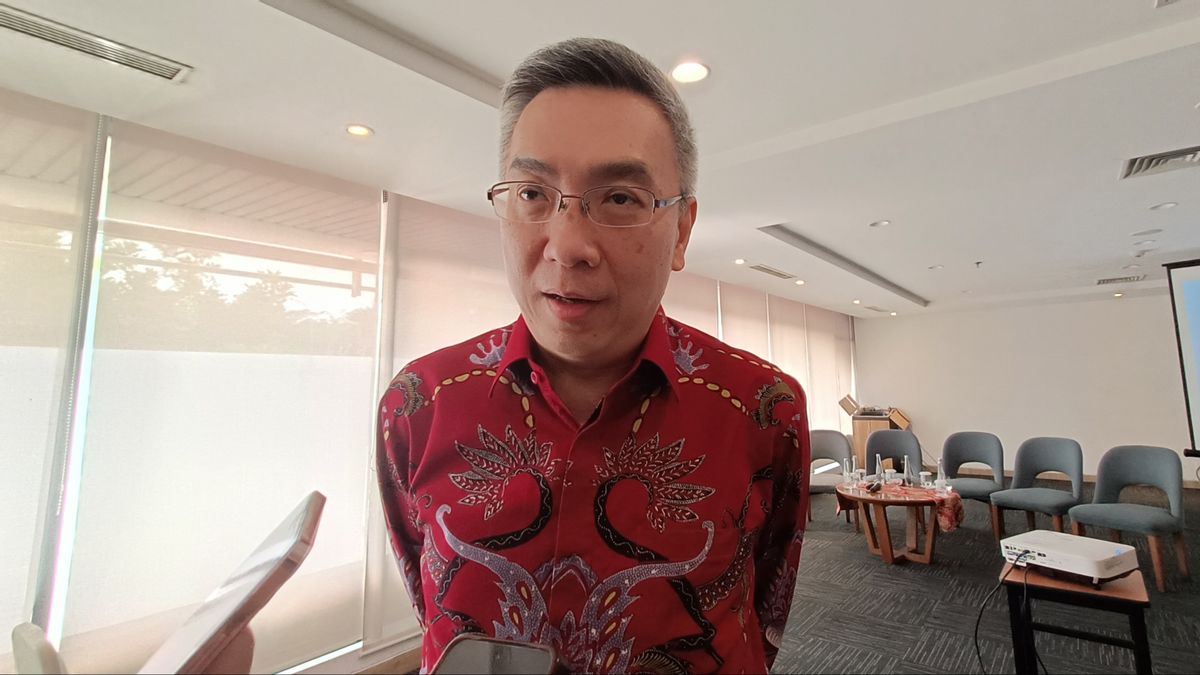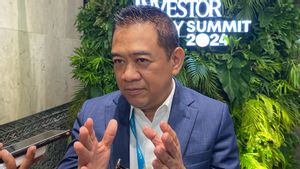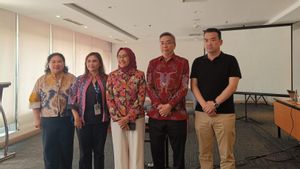JAKARTA - The Indonesian Shopping Center Retailer & Tenants Association (Hippindo) has spoken about the downward trend in middle class spending.
Chairman of Hippindo Budihardjo Iduansjah said there were a number of government policies that made a number of middle class segments lazy to shop.
The policies in question include the implementation of odd-even and restrictions on imports that make people reluctant to shop at malls.
Budihardjo assessed that the odd-even policy in Jakarta, for example, had made it difficult for the public to go to the mall.
"If I say, it's odd, even makes people lazy to go to the mall. Jakarta has odd-even, lazy. Let's have a meeting at Grand Indonesia (GI), it's odd or even," said Budihardjo when met by reporters after the 2024 Consumer Sourcing Expo (CSE Asia) press conference at ICE BSD, Tangerang Regency, Wednesday, October 9.
"Let's have coffee, it's not finished. Finally, I wanted to have coffee, I looked for the mall," he continued.
He even said that one of his restaurants located at Grand Indonesia would soon close because there were few buyers.
"For example, I also have a restaurant at GI. But, I want to close it because it is difficult (buyers). Saturdays and Sundays are crowded, but Mondays to Fridays are quiet. In fact, there are offices," said Budihardjo.
According to him, if the regulations made by the government do not make it easier, it is feared that the decline in the middle class will be more significant.
"Because they want to do what it's hard to do and run to the online. Then finally the mall doesn't make it. As soon as the mall investment doesn't exist, people stay at home. People are at home, it's dangerous," he said.
In addition, the government's policy of tightening the entry of official imported goods has made it difficult for retailers to sell goods and meet stocks. The lack of variety in imported products and the high price of imported goods makes people choose to shop abroad compared to in Indonesia.
"So we lose to foreign countries because (they) take the opportunity rather than policies that protect SMEs. In fact, those in malls don't need to be protected. The person who goes abroad, the SME will not go abroad, that must be protected by cheap goods," explained Budihardjo.
Therefore, he hopes that the government, in this case the provincial government, will review the odd-even policy so that people can take their time to the mall.
Meanwhile, for the central government, Hippindo hopes that official import policies will not be complicated.
Thus, retailers can meet store stocks and attract more visitors. Instead of making it difficult for official imports, the government should tighten supervision of illegal imported products.
"So, not only regulations from the central government, but also synergies with ministries and local governments," he added.
SEE ALSO:
Previously, data from the Central Statistics Agency (BPS) as of August 2024 showed a decline in the number of middle class population. Data in 2019 shows the number of 57.33 million people which then fell to 53.83 million people in 2021.
BPS again recorded a decline in the number of middle class in 2022 to 49.51 million people and 48.27 million people in 2023 which fell again this year to 47.85 million people.
At the same time, the number of people who fall into the category towards the middle class from 128.85 million people rose to 137.50 million people in 2024.
In addition, the number of poor people was also recorded to have increased from 2019 to 54.97 million people to 67.69 million people.
Acting (Plt) Head of BPS Amalia Adininggar Widyasanti in a press conference on August 30, 2024, said that strengthening purchasing power is needed not only for the poor, but also for the middle class and towards the middle class.
The English, Chinese, Japanese, Arabic, and French versions are automatically generated by the AI. So there may still be inaccuracies in translating, please always see Indonesian as our main language. (system supported by DigitalSiber.id)
















